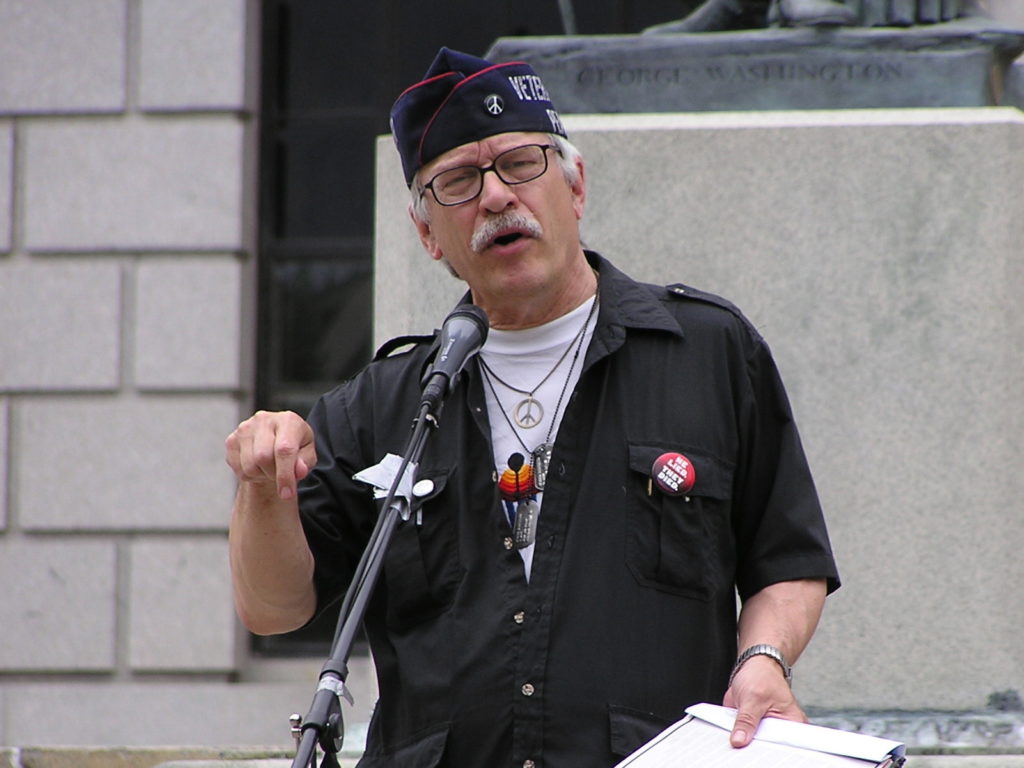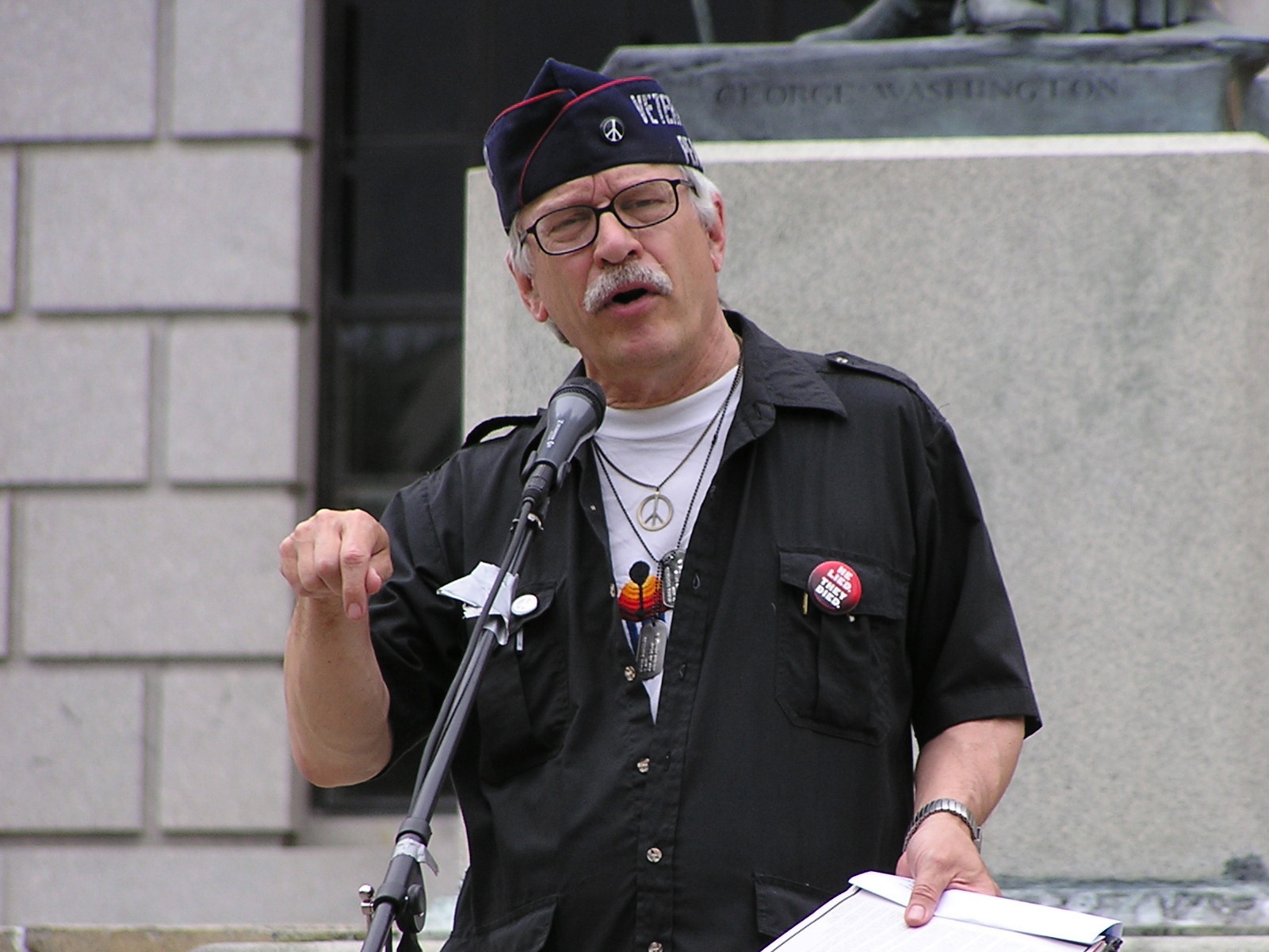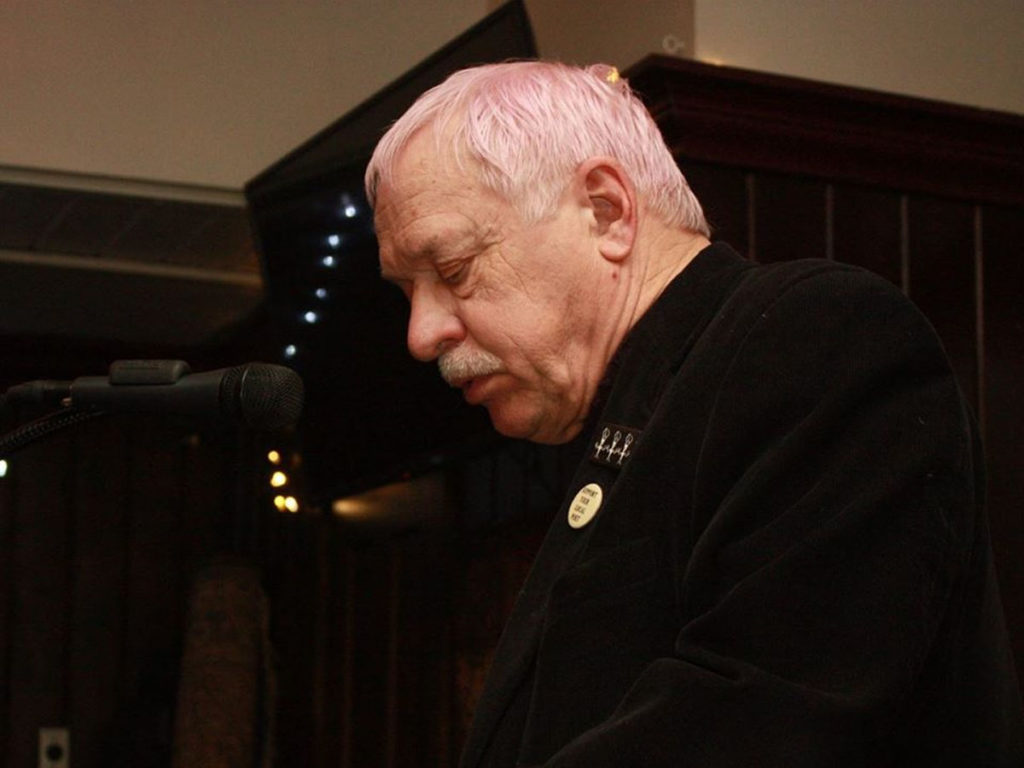
Dan Wilcox is the host of the Third Thursday Poetry Night at the Social Justice Center in Albany, N.Y. and is a member of the poetry performance group “3 Guys from Albany”. As a photographer, he claims to have the world’s largest collection of photos of unknown poets. He has been a featured reader at all the important poetry venues in the Capital District & throughout the Hudson Valley and is an active member of Veterans for Peace.
GOING POSTAL
Once, when I was 10 years old, I saw my grandfather
sitting beneath a tree next to the Post Office.
He worked there as a clerk
selling stamps.
“Hi Grandpa,” I said,
“how are you feeling
His bluntness surprised me.
“Lousy,” he said. “Do you think I’d be sitting here
If I felt OK?” In a year or two he had cancer and died.
My mother worked there too
and when she died
the signatures filled two guest books.
They knew her as the nice lady
at the Post Office, selling stamps.
And my father was a mail carrier, the only job
I ever knew him to have.
The same routine in all kinds of weather wore him down.
He retired early to loneliness, cigarettes and beer.
But he never owned a car, he walked, like a mailman
or took the bus.
I delivered mail too, in college, at Christmas time
My father stayed inside and sorted the mail
I wanted to do as good a job as I knew he did.
Now mailmen have little trucks with steering wheels on the wrong side
or carts to carry the bags
and at the Post Office you can buy boxes
and tape and phone cards
and Bugs Bunny hats and keychains
and pay for it all with Master Card.
You can buys stamps, like soda, from huge vending machines.
But when someone says some guy “went postal”
I think of my father, of his father, my mother
going off to work early in the morning, walking to the Post Office
going postal, doing their job.
Rebecca Schumejda: Would you discuss how this modern phrase helped you to create a poem that celebrates postal workers?
Dan Wilcox: I thought that this phrase “going postal” was demeaning to postal workers, that there are thousands & thousands of postal workers across the country doing their job every day, hard-working, working-class people trying to make a living, & they are no more likely than any other workers to have a breakdown because of their job. As poets we play with language & as I reflected on my own family connection to the postal service I thought about turning the phrase on its head. The poem actually is a parsing or deconstruction of the expression “going postal.”
RS: As far as process and writing, did you write this in one sitting or did the idea resonate over a period time before finding its way to the poem?
DW: I don’t recall specifically how this poem was written, but I typically have an idea that then “composts” or “percolates” over time before I put it down on paper, first handwritten, in a pocket notebook or my “poetry workbook,” then transcribed on the computer. I read the poem aloud, try it out at open mics, revising, even revising years later when I return to it. When I used to walk to work (“like a mailman”) I would have these poems in my head day after day until I felt inclined to sit down & write it.
RS: Do you think working-class poetry is adequately represented in the literary canon? Do you think that is changing or will change? Why/why not?
DW: The literary canon is constantly changing. Certainly when I was in high school & college there wasn’t much “working-class poetry;” I was told I couldn’t write my Senior (h.s.) paper on Allen Ginsberg because he “wasn’t important enough.” This is certainly changing with students studying “working-class literature,” writing PhD dissertations on it, even departments of “working-class literature.” And more people than ever before are writing poetry, reflecting the diversity of their upbringings. Perhaps they were always out there, but now there are more opportunities to read & even publish one’s work. That’s as it should be.






